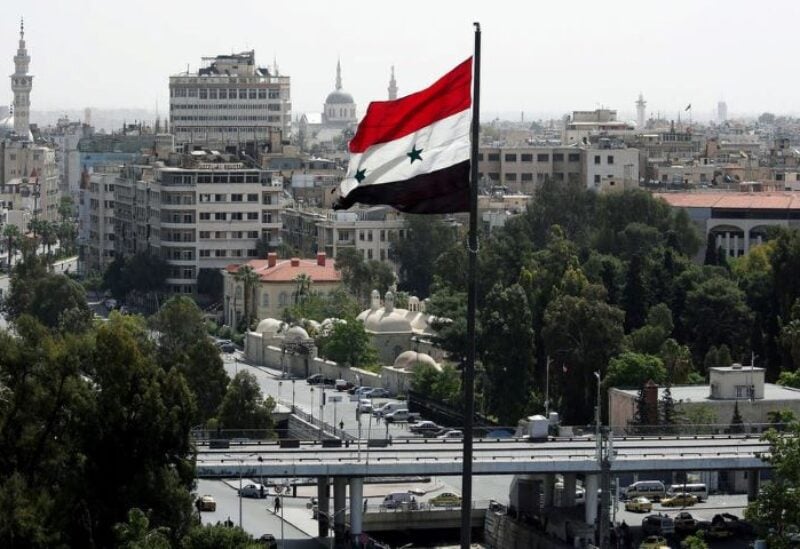
A Syrian flag flutters in Damascus on April 20, 2018
Amid pleas for international assistance to contain a jihadist resurgence, Kurdish forces advanced Wednesday inside a Syrian prison where Daesh group fighters have been holed up with minors for six days.
More than 100 jihadists of the Daesh group last week attacked Ghwayran prison in the northeast Syrian city of Hasakah, held by a semi-autonomous Kurdish administration.
The brazen assault on the Kurdish-run facility involved a double suicide bombing and saw the jihadists free fellow Daesh members, seize weapons and take over a series of jail blocks.
It is considered the most sophisticated attack carried out by the group since it was territorially defeated in Syria nearly three years ago.
On Wednesday, the Kurdish-led Syrian Democratic Forces (SDF) and allied fighters “carried out search operations inside prison blocks” and in areas surrounding the facility, where intermittent clashes had broken out overnight, said the Syrian Observatory for Human Rights.
US-backed Kurdish forces were “advancing slowly” inside the jail where jihadists were still holed up, said the Britain-based monitor.
Fighting in and around the prison since Thursday has killed 181 people, including 124 Daesh jihadists, 50 Kurdish fighters and seven civilians, according to the Observatory.
With operations inside the facility underway, fears were raised over the fate of minors detained at Ghwayran, which held more than 700 boys among 3,500 Daesh suspects prior to the attack.
“They say they fear they’ll be shot down if they try to come out. They are begging for food, water, medicine,” said Human Rights Watch researcher Letta Tayler, adding she had made contact with three inmates including one minor trapped inside the jail.
They are calling for the United Nations “or other international organization to negotiate their safe exit,” Tayler said.
A tense stand-off has gripped the prison, with Kurdish forces and their Daesh rivals facing either a bloodbath or talks to end the fighting.
“The most likely way this ends is with the total defeat of the Daesh fighters at the prison,” said Nicholas Heras, an analyst at the Newlines Institute.
“But the nightmare scenario for the SDF and the US-led coalition is a drawn out standoff that kills hundreds, including many children prisoners.”
Kurdish forces since Monday have freed 32 prison staff, some of whom appeared in video footage that Daesh had shared on social media after launching the attack, the Observatory says.
Around 1,000 men, including rebelling inmates and Daesh jihadists, have so far surrendered to Kurdish forces, the Kurdish-led Syrian Democratic Forces said Wednesday.
Observatory head Rami Abdel Rahman said that a Syrian Daesh jihadist was negotiating with Kurdish forces to end the mutiny and secure medical care for wounded jihadists.
Farhad Shami of the SDF media office said the SDF had made calls for Daesh to surrender, but he refused to refer to them as formal negotiations.
Ghwayran is the prison with the largest number of suspected Daesh members in Syria, the Observatory says.
Kurdish authorities say more than 50 nationalities are represented in a number of Kurdish-run prisons, where over 12,000 Daesh suspects are being held.
The Kurdish administration has long warned it does not have the capacity to hold, let alone put on trial, the thousands of Daesh fighters captured in years of operations.
“This issue is an international problem,” Abdulkarim Omar, the administration’s top foreign policy official, told AFP on Wednesday.
“We cannot face it alone.”
He called on the international community to “support the autonomous administration to improve security and humanitarian conditions for inmates in detention centers and for those in overcrowded camps.”
The proto-state declared by Daesh in 2014 once straddled large parts of Iraq and Syria.
After five years of military operations conducted by local and international forces, its last rump was eventually flushed out on the banks of the Euphrates in eastern Syria in March 2019.